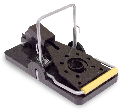Just about everyone has heard the old phrase "Don't let the bed bugs bite." The question is though, what are bed bugs? While the answer to this question is rather simple (they are more than a nursery rhyme after all) it doesn't begin to cover all the information that you really need. All in all, bed bugs are really rather simple critters, and are fairly easy to understand.
- What are they? Generally speaking, bed bugs are a bunch of different parasitic insects that like to feed on the blood of humans (or other animals) to survive. For the most part the words bed bug is used in reference to critters that belong to the family Cimicidae, and the genus Cimex, though the common bed bug is Cimex lectularius.
- Description. This pest has been around and pestering humans for thousands of years, and can all be described by the same general description. Typically these critters have a reddish-brown color, are oval shaped, somewhat flat, and wings that are only vestigial in nature.
- Where they live. Bed bugs can live just about anywhere, but generally prefer a temperature range between 61 degrees and 113 degrees Fahrenheit. That being said, they can also survive for several days at temperatures as low as 14 degrees Fahrenheit. Since bed bugs as a rule are rather nocturnal, they will only really come out during the night time. Typically, these bugs will live in areas that are enclosed by cloth. Some examples of this are things like beds, carpets, wallpaper, couches, and so on.
- Cause of infestation. The most common cause of infestation is due to inadvertently bringing in an infested item. The bugs will then leave the already infected item, and then spread to the surrounding area. In addition, when these bugs get established, they can very easily end up creating an infestation that will cause you all kinds of problems.
- Detection. Other than directly seeing the bed bug, it can often be difficult to tell whether you have any until it is too late. That being said, there is a rather obvious way to tell if there is a slight problem, and that is if you can smell the odor of raspberries that are overly ripe. In addition, you can also find signs of unexplained bites on the skin, tiny blood smears, and even small fecal spots. That being said, there are now dogs that are trained to detect signs of such problems.
- Removal. Removing bed bugs can take quite a bit of work, usually by combining both pesticides and non-pesticide measures. Some of the more effective pesticides will usually include things like pyrethroids, malathion, and dichlorvos. However, these by themselves won't work, so you will need to include vacuuming, and even applying excessive heat to the areas. If that doesn't work, you may need to remove every scrap of cloth from your house, in conjunction with these methods.
Author Bio
Lee Wyatt
Contributor of numerous Tips.Net articles, Lee Wyatt is quickly becoming a regular "Jack of all trades." He is currently an independent contractor specializing in writing and editing. Contact him today for all of your writing and editing needs! Click here to contact. Learn more about Lee...
Repairing Dented Wood
If you have a wood floor, wood furniture, or even just a simple wooden surface somewhere in your home, then chances are ...
Discover More
Restoring Yellowed Apparel
While it can be annoying to find that your white apparel and linens have turned yellow in the laundry, it no longer needs ...
Discover More
Choosing a Perfect Turkey
Choosing a perfect turkey is key to being able to have a great Thanksgiving get together, or simply having a great ...
Discover More
Protecting Household Pets from Parasites
Exercising a little common sense, keeping your home clean, and making regular visits to your vet can help protect your ...
Discover More
Getting Rid of Lice
Lice are highly contagious. If your child is exposed to lice, there are chemical and natural remedies to get rid of them.
Discover More
Getting Rid of Lice in Your Home
Chances are everyone remembers those lice checks that they went through in elementary school at some point or another. ...
Discover More

Comments